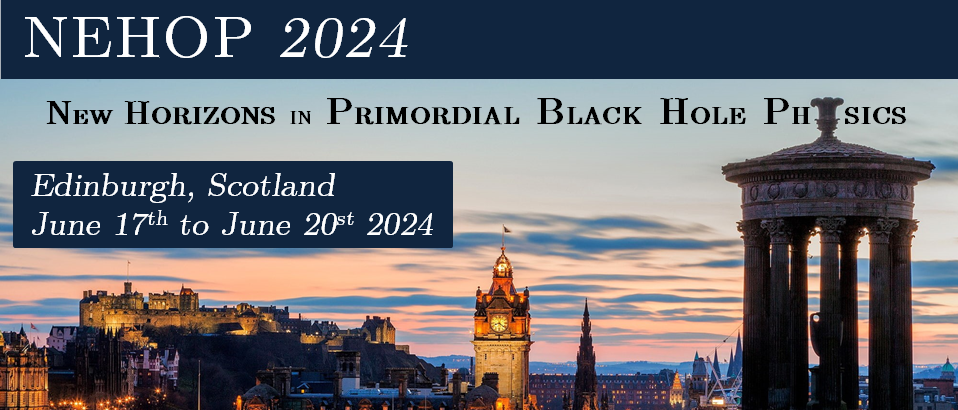Conveners
Session 5
- Chair: Florian Kuhnel
I will overview the current status of observational constraints on the abundance of Primordial Black Holes (PBHs) of all masses, including astrophysical uncertainties on stellar microlensing constraints, constraints on (more realistic) extended mass functions, and prospects for probing asteroid mass PBHs.
The current merger rate prescriptions for primordial black holes (PBHs) only apply to peaked mass distributions. For an extended mass distribution that includes features from the QCD epoch, additional effects must be taken into account that can importantly change these rates. Based on new estimations of the merger rates of early and late PBH binaries, I will present an update of the status...
Primordial black holes (PBHs) may contribute to the observed abundance of dark matter. We use the black-hole mass distribution obtained from the detected binary black hole merger events by the LIGO/VIRGO gravitational-wave observatories, with a signal to noise ratio (SNR) $>$ 8. We search for and place limits on PBHs in the stellar-mass range. We also simulate binary black holes following...
During the talk, I will delve into the unique candidate of Planck mass Primordial Black Hole (PBH) relics as dark matter. These relics, arising from the evaporation of light PBHs with initial masses ranging from 1g to approximately 10^6g, possess the potential to account for the entirety of dark matter in our universe. My presentation will encompass a thorough review of existing constraints on...

